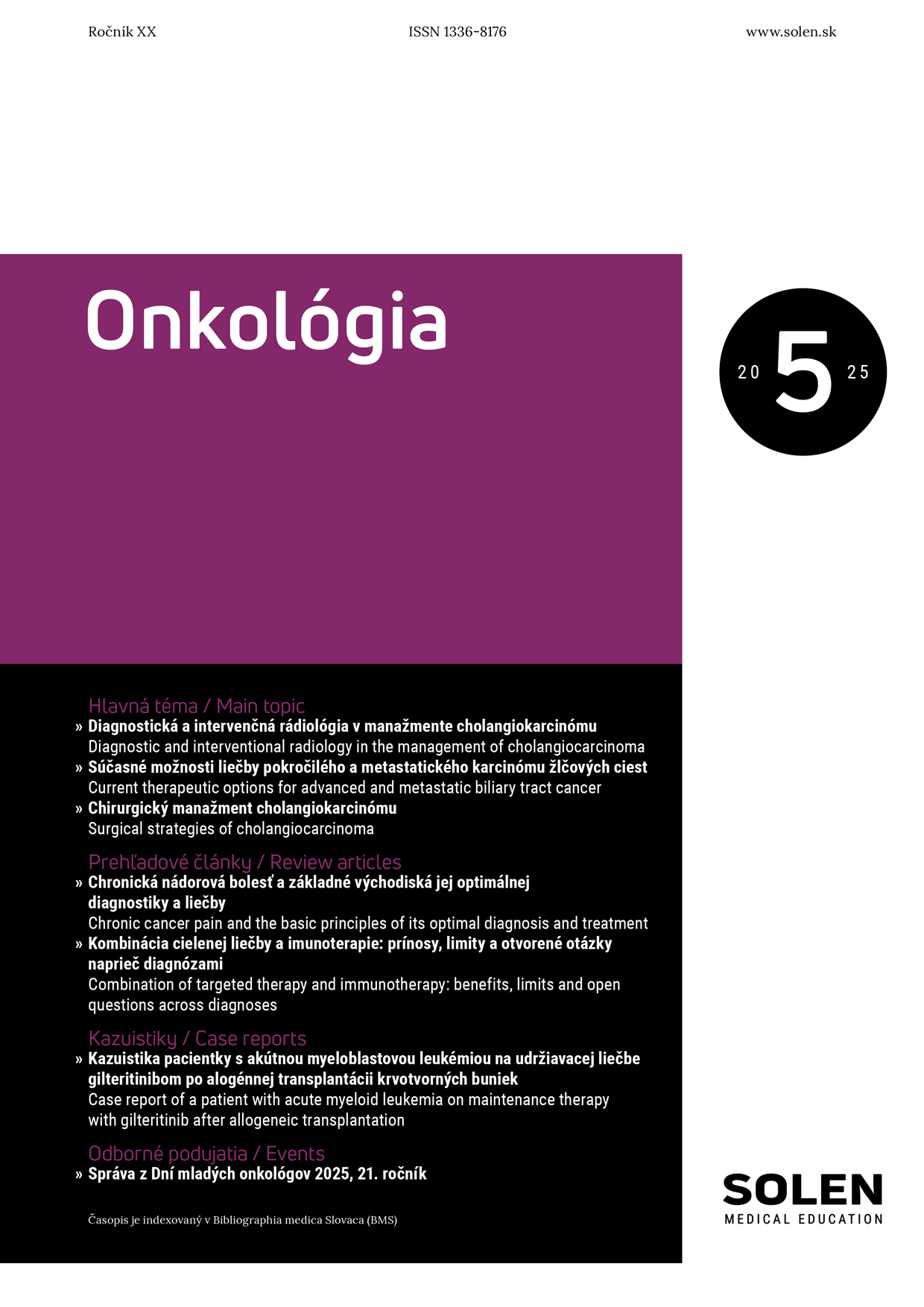Onkológia 5/2015
Prípad pacienta so vznikom akútneho koronárneho syndrómu počas liečby bevacizumabom
MUDr. Mária Rečková, Prof. MUDr. Beata Mladosievičová, CSc., MUDr. Barbora Piteková
Cieľ: Hlavným cieľom tejto publikácie je poukázať na možné závažné nežiaduce účinky, ktoré sa vyskytujú u pacientov liečených antiangiogénnou terapiou. Prípad (kazuistika): Prezentujeme kazuistiku 53-ročného pacienta s metastázujúcim kolorektálnym karcinómom, ktorý bol liečený antiangiogénnou terapiou (bevacizumabom) v kombinácii so štandardnou protinádorovou liečbou. Bevacizumab sa mu podával kontinuálne takmer tri roky. Počas liečby u pacienta vznikol akútny koronárny syndróm, pričom hlavnú úlohu pri jeho vzniku pripisujeme práve antiangiogénnej liečbe. U pacienta, dovtedy v dobrom celkovom stave, sa postupne rozvinul klinický obraz srdcového zlyhávania a výrazne sa mu zhoršila kvalita života. Záver: So stále rastúcim použitím antiangiogénnej terapie na liečbu nádorových ochorení sa onkológovia v klinickej praxi čoraz častejšie stretávajú aj s ich nežiaducimi účinkami. Tromboembolické komplikácie sú z nich síce najzriedkavejšie, ale pri ich neskorom rozpoznaní a neadekvátnej liečbe môžu mať pre pacientov fatálne následky.
Kľúčové slová: bevacizumab, antiangiogénna terapia, kardiotoxicita, akútny koronárny syndróm.
A case of a patient developed an acute coronary syndrome during the treatment with Bevacizumab
Purpose: The main objective of this publication is to highlight potential serious adverse effects which manifest themselves in patients treated by anti-angiogenic therapy. Case: The case of a 53-year old patient with a metastasized colorectal carcinoma is being presented. The patient was treated with antiangiogenic therapy (Bevacizumab) in combination with standard anti-cancer treatment. Bevacizumab had been administered continually for 3 years. During the treatment, the patient developed an acute coronary syndrome, which is attributed largely to the anti-angiogenic treatment. The patient, who had been previously in good health, presented a clinical picture of heart failure and his quality of life deteriorated dramatically. Conclusion: As a result of ever increasing use of anti-angiogenic therapy in tumour treatment, clinical oncologists deal with its adverse reactions as well. Thromboembolic complications are the least frequent, however, when undetected and mistreated, they may lead to fatal consequences for patients.
Keywords: bevacizumab, anti-angiogenic therapy, cardiotoxicity, acute coronary syndrome.

















